 Petzlover
Petzlover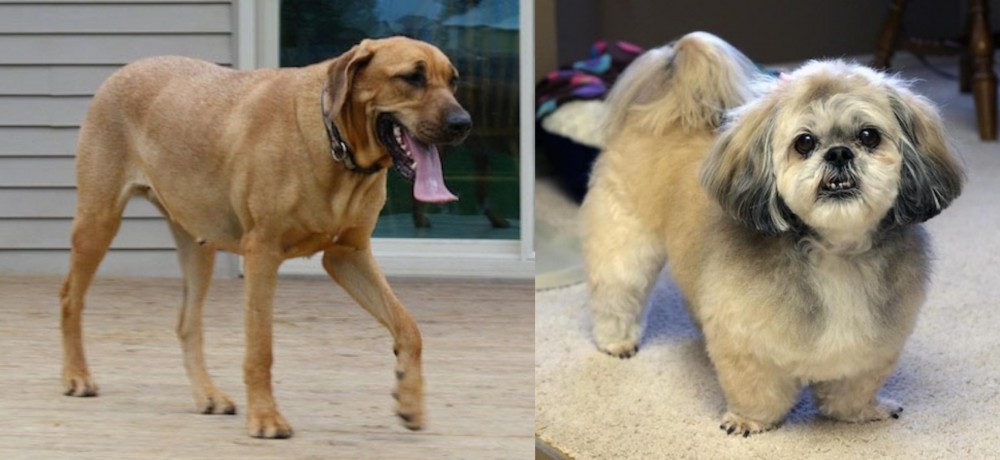 Danish Broholmer is originated from Denmark but PekePoo is originated from United States. Danish Broholmer may grow 49 cm / 20 inches higher than PekePoo. Danish Broholmer may weigh 51 kg / 113 pounds more than PekePoo. Danish Broholmer may live 3 years less than PekePoo. Danish Broholmer may have more litter size than PekePoo. Both Danish Broholmer and PekePoo requires Moderate Maintenance.
Danish Broholmer is originated from Denmark but PekePoo is originated from United States. Danish Broholmer may grow 49 cm / 20 inches higher than PekePoo. Danish Broholmer may weigh 51 kg / 113 pounds more than PekePoo. Danish Broholmer may live 3 years less than PekePoo. Danish Broholmer may have more litter size than PekePoo. Both Danish Broholmer and PekePoo requires Moderate Maintenance.
 The Danish Broholmer is also known as the Danish Mastiff. This is a large dog which comes from Denmark.
The Danish Broholmer is also known as the Danish Mastiff. This is a large dog which comes from Denmark.
Known as a molosser breed, the dog used to fulfill a guard dog role in the home of wealthy Danish people. There are those who take one look at the dog’s size and build, and regard him as aggressive, when in fact he is a calm, good-tempered dog.
The origin of this large dog breed goes way back to the Middle Ages, although details of the dog’s origins are unknown. The Broholmer comes from mixing the English Mastiff and various local German breeds, being named after the Sehested of Broholm.
The dog all but became extinct during the Second World War. It was in 1974 that the Danish Kennel Club started looking to revive the breed. The breed was revived and the dog was imported to the United Kingdom in 2009. The Danish Broholmer has been recognized by the United Kennel Club in 2006.
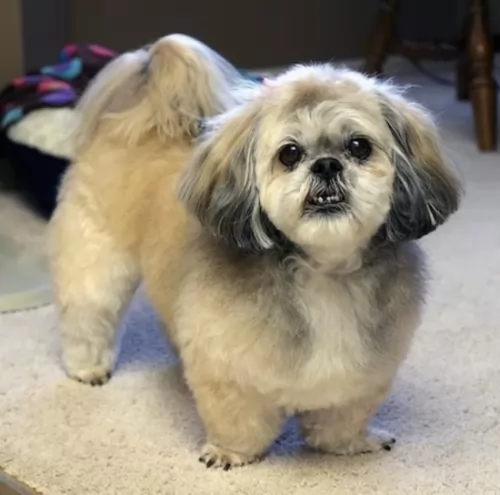 As a cross between a Peingese and a Poodle, your cute Peekapoo as he is also known, isn't a purebred dog. They first started making their appearance in the 1900s, in fact it was believed to be developed in the 1950s, being one of the oldest designer dog breeds.
As a cross between a Peingese and a Poodle, your cute Peekapoo as he is also known, isn't a purebred dog. They first started making their appearance in the 1900s, in fact it was believed to be developed in the 1950s, being one of the oldest designer dog breeds.
He was bred to be a a low-shedding, hypoallergenic companion dog. Both the parent dogs have their own unique, long histories. Dog experts aren’t too sure where the Pekepoo originated from.
This dog breed isn’t recognized by the American Kennel Club, because it is a hybrid breed, but it is recognized by the American Canine Hybrid Club.
 The Danish Broholmer is a large dog that looks familiar to the Mastiff. The dog stands roughly between 66 and 75cm and weighs between 40 and 60kg.
The Danish Broholmer is a large dog that looks familiar to the Mastiff. The dog stands roughly between 66 and 75cm and weighs between 40 and 60kg.
The body is strong and muscular and he has the large head of the molosser. The coat of the dog is short and harsh, with the color being fawn, light brown, yellowish or black. He is quite a heavy shedder and will require brushing twice a week.
The dog usually has a black mask.The muzzle is also large, the nose black. His ears are medium-sized, set high and floppy, the chest deep. The tail is long and carried downwards.
The Danish Broholmer is an awesome family pet who seems to go out of his way to please his human family. He is an intelligent dog and obedient by nature. Because he is so devoted to his human family, he wants to protect them too.
He is a non-aggressive dog and the best part about owning such a dog is that he is a gentle pet for the family but he still looks threatening to intruders.
The Danish Broholmer gets on well with children and pets in the home. However such a big dog needs to be trained and socialized and he could jump up against smaller people and unintentionally send them flying. Training will see to it that he responds well do simple commands such as ‘down’, ‘sit’, lie-down’ and ‘come’.
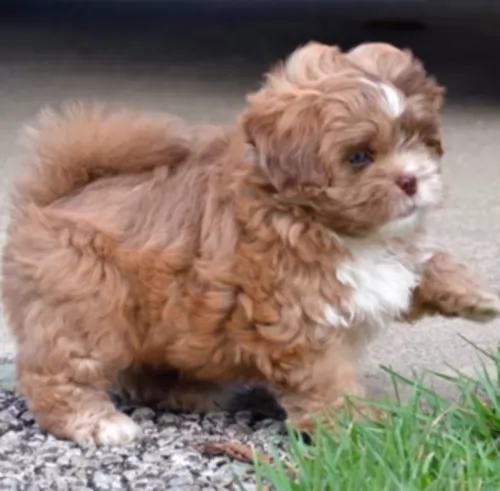 People love these little dogs because of their lack of shedding and it having a hypoallergenic coat. The coat is soft and can be wavy to curly with some feathering around the ears and tail.
People love these little dogs because of their lack of shedding and it having a hypoallergenic coat. The coat is soft and can be wavy to curly with some feathering around the ears and tail.
It is medium length and comes in a variety of colors such as fawn, cream, white, black, apricot or chocolate. The coat can have a mix of some of these colors too. This is a small dog that stands at between 23–26cm and weighs in the region of 4 to 9kg. He has floppy, low set ears and bright brown eyes.
They're such cute little dogs, loving and loyal to their human family. However, there is another side to them and they can be independent, aloof and stubborn. They’re very intelligent little dogs and will require both mental and physical stimulation to prevent boredom.
Because’s he’s so smart, you won’t have any trouble training him new skills. He’ll do well with children in the home as well as with pets, especially once he’s been trained and socialized.
He is able to settle into life in the city or the countryside. Even though he is a small dog, he will have to have his share of exercise if he is to remain healthy and content. They are dogs that love to be cuddled and petted ad he gets along well with everyone in the family.
Even though he is a true family pet, loving and loyal, he becomes a good watchdog too as he wants to protect all those he loves.
 Once people have owned a Danish Broholmer, they have got nothing but good comments about them. You hear words such as courageous, sweet, good-natured, playful and intelligent. Also if he believes his family is in danger he will want to protect them.
Once people have owned a Danish Broholmer, they have got nothing but good comments about them. You hear words such as courageous, sweet, good-natured, playful and intelligent. Also if he believes his family is in danger he will want to protect them.
He is a great friend for child and adult and a fairly low maintenance breed too. He is an adaptable dog, but his size isn’t suited to small, cramped spaces. He will need to be exercised but this should be a pleasure as every human being can use some additional exercise themselves if they want to remain healthy.
Look after your wonderful amicable Danish Broholmer and he’ll shower you with his doggy love and devotion.
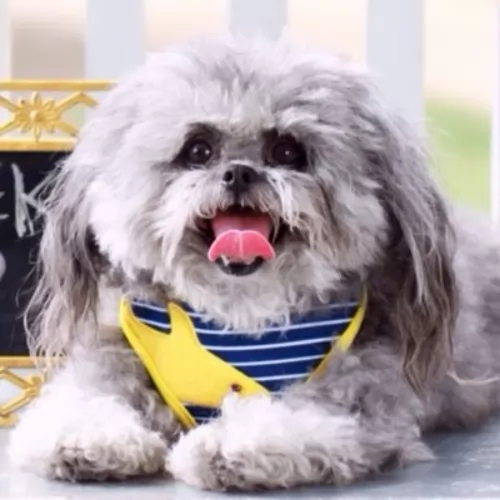 Your Pekepoo is such a gentle, sweet dog, making the perfect family pet. He is gentle, loving and amicable with his human family and wants to be involved in all their activities.
Your Pekepoo is such a gentle, sweet dog, making the perfect family pet. He is gentle, loving and amicable with his human family and wants to be involved in all their activities.
Coming from the Poodle and the Pekingese, he will have inherited some personality from each of these two popular dog breeds.
He is coming into your home ready to make you a splendid pet and companion and he asks nothing more than good care from you as a responsible dog owner.
 The Danish Broholmer is a large dog who can consume quite a lot of food. With large dogs like these, there is often strain on the dog’s joints.
The Danish Broholmer is a large dog who can consume quite a lot of food. With large dogs like these, there is often strain on the dog’s joints.
Also dogs with deep chests are also prone to gastric dilatation volvulus or bloat. In fact, large dogs can also suffer with obesity apart from joint problems. It is why they often live shorter lives than smaller dog breeds. Some points to consider with your large breed pet -
Nutrition is most important for puppies and your adult dog. Don’t overfeed your large breed puppy as he can grow too quickly so that his joints are at risk of injury.
Too much weight gain as well as too much exercise can increase the risk of your dog developing hip dysplasia. This is a hereditary disorder, causing problems with the hips. The disease can lead to terrible pain and sometime lameness. Always remember to keep the weight of your dog in a healthy range to prevent pressure on the joints.
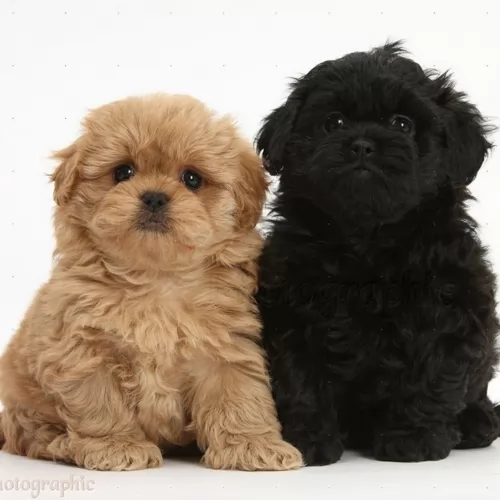 As with any dog, there are certain common dog ailments that you want to watch out for in your Pekepoo. Brachycephalic airway syndrome is one as well as dental disease and obesity.
As with any dog, there are certain common dog ailments that you want to watch out for in your Pekepoo. Brachycephalic airway syndrome is one as well as dental disease and obesity.
Because your Pekepoo has a somewhat squashed face, he may have abnormalities in the upper airways. Dogs with this syndrome have heavier breathing than other dogs and he might even have a cough. The troublesome part is that these breathing difficulties can put pressure on the cardiovascular system.
Small breed dogs are always at an increased risk of being obese and being obese can mean your dog possibly developing osteoarthritis, diabetes, cardiovascular disease, high blood pressure as well as other diseases.
 For his size, you’d be inclined to think that the Danish Broholmer will require a lot of exercise, but in fact he is much like any other other. He will love to join you on your daily walks and will readily run to fetch a ball.
For his size, you’d be inclined to think that the Danish Broholmer will require a lot of exercise, but in fact he is much like any other other. He will love to join you on your daily walks and will readily run to fetch a ball.
Your Danish Broholmer will require quality food manufactured exclusively for large dog breeds.
There are excellent manufactured dog foods out there and you can take the kibble and mix in some home-made foods from time to time such as cooked brown rice, vegetables and chicken. He will also require some raw meat added into the diet occasionally.
Never leave him without a constant supply of cool, fresh water.
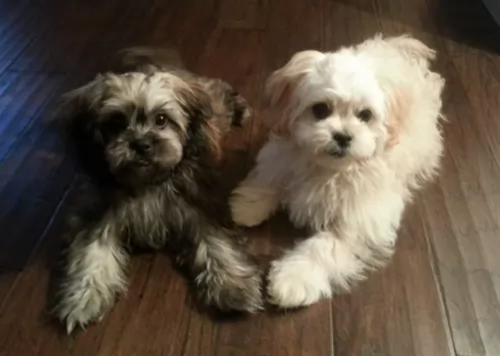 Your small designer Peekapoo will do well on a high quality kibble diet. Always check out the packaging and see how much to feed a small dog like this. It is better to give a dog 2 smaller meals a day as composed to one because with one they tend to gobble it up which can lead to a serious condition known as bloat.
Your small designer Peekapoo will do well on a high quality kibble diet. Always check out the packaging and see how much to feed a small dog like this. It is better to give a dog 2 smaller meals a day as composed to one because with one they tend to gobble it up which can lead to a serious condition known as bloat.
Dogs love simplicity and consistency with their food, but it is always to your dog’s benefit to feed him some home-made food too. Some chopped up boiled chicken, brown rice or pasta and some vegetables such as spinach, carrots and sweet potato added into the kibble occasionally will do him the world of good. Every now and again a little bit of raw meat can also be given.
Never leave your pet without a bowl of fresh, cool water.
Lively and energetic, your Peekapoo is going to need daily exercise. He will love the chance to sniff around and explore on your daily walks but he is ready to become more involved than that and will join you with hikes and swimming too. He is happiest when spending activity times with his human family. As with any dog, just make sure he doesn’t overdo it, especially on a hot day.
To keep your Pekepoo’s hair tangle-free, you’ll need to brush it twice a week. If you feel that his hair is getting too unruly, you can take him to the doggy parlor and have it trimmed into a shorter style. They’ll clip his nails at the same time, check inside his mouth for any signs of dental disease and check inside his ears too for dental infection.